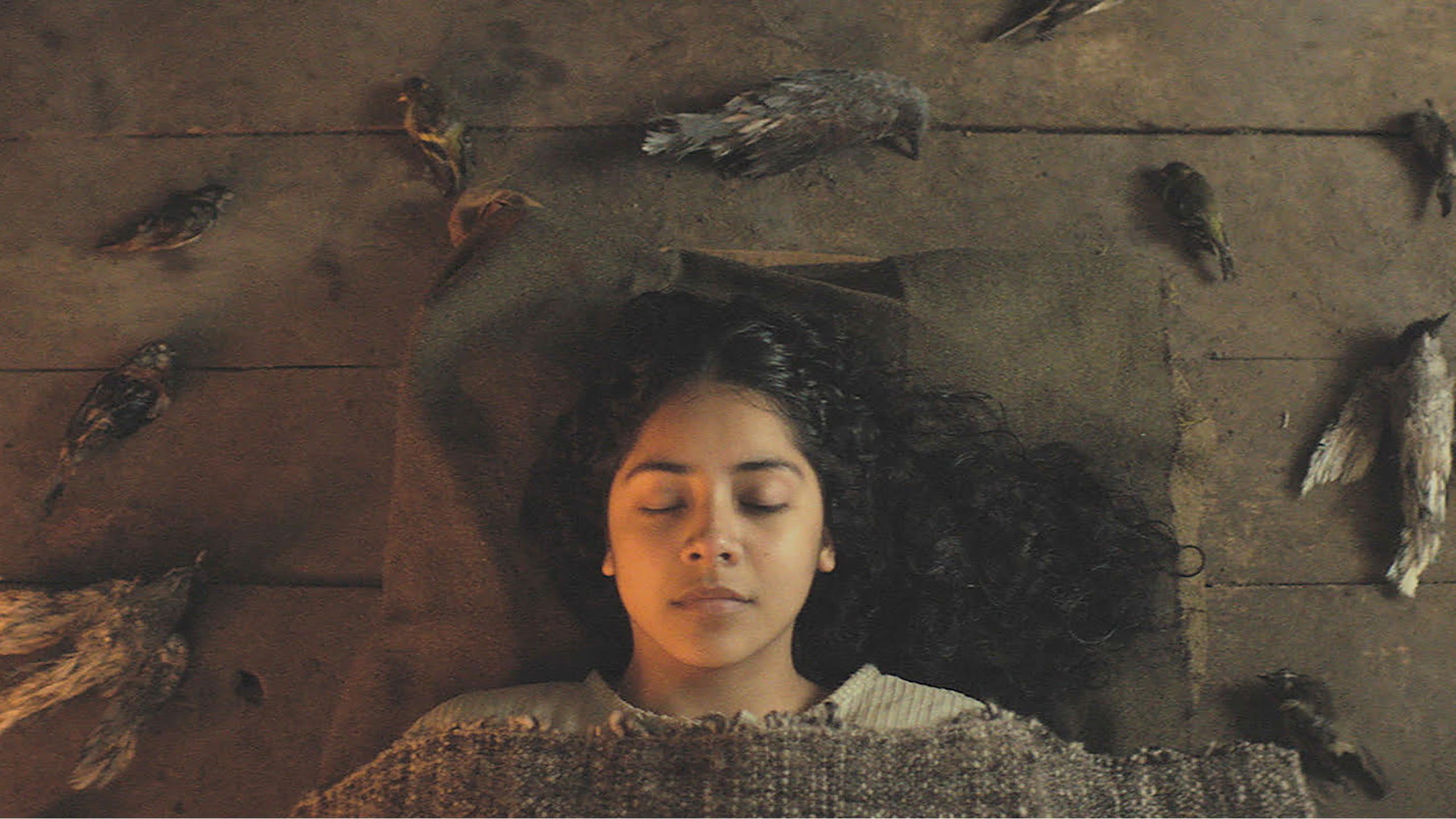Films with magic are my joy. Good or bad, there’s fun to be had. In Sorcery, playing at the 2023 Sundance Film Festival, brujería mixes with revenge creating an atmospheric, slow burn. Set on the remote island of Chiloé in the late 19th century, Rosa (Valentina Véliz Caileo), an Indigenous girl, seeks justice for her father’s vicious murder. Directed by Christopher Murray, written by Murray and Pablo Paredes, with cinematography by María Secco, the film uses every aspect to create a taut tale filled with stunning imagery.
Sorcery does not have scares in the literal sense. But the fear and dread come from the remoteness of their location and the danger from the settlers and the Chilean Christian authorities. Disturbing imagery, like dead birds and glowing-eyed dogs, heightens the suspense.
Akin to a grim fable, Sorcery is a moody horror film that employs a minimalist style, letting the elements and acting build the tension. Rooted in the history of conflict between German colonists and the native Huilliche people of Chile, the film is as much a coming-of-age tale as a spellbinding revenge thriller.
Alongside her father, Rosa lives as a servant for a German family of settlers. After bringing them their breakfast, Rosa goes outside to see all the family’s sheep lying dead. The German father, Mr. Stefan (Sebastian Hülk), accuses his help and grabs Rosa. When her father tries to defend her, Mr. Stefan unleashes his dogs, who tear apart Rosa’s father. The twisted German patriarch holds Rosa, making sure she watches the murder while his wife and sons observe them from behind.
The film is as much a coming-of-age tale as a spellbinding revenge thriller.
As Rosa searches for a new place to stay, she also starts looking for justice. Eventually, she lands on Mateo’s (Daniel Antivilo) doorstep, and he gives her shelter. He does not follow her Christian faith, explaining that Huilliche are creatures of the sea, not of heaven. Rosa seesaws between her faith in God and embracing her culture and the magic that comes with it. Véliz Caileo artfully portrays Rosa’s transition from quiet misery to rage to confidence, never overplaying her hand.
She and Mateo argue because she makes the same error adults do – she mistakes excuses for reasons. When she witnesses a ceremony in the woods with the same knotted cords the dead lambs had, she blames her new friends for her father’s murder. People tend to fault what they can punish or control and Rosa doesn’t believe she has any control over the Germans. As Mateo reminds her, Mr. Stefan murdered her father because he was Huilliche – the sheep are his excuse.
Grief-stricken, Rosa tries to end her life by the sea, and Mateo rescues her. Despite her Christian faith, she asks Mateo’s help in seeking vengeance for her father’s death.
Another human error, especially among decent people, is trusting awful people. After Mr. Stefan’s wife goes to her sons’ room and sees two dogs in their beds where her sons should be, the European/mestizos organize a search party. Mr. Stefan snaps that if the mayor “talked less,” he would not rot on the island. Basically, it’s code for “how dare you allow them to seek justice.”
Films like these create horror that rests in your bones. But the horror is knowing people experienced and continue to experience atrocities because they are not white.
For all their worry, neither parent looks distraught. But their German settler status and the mayor’s desire to leave the island with his pregnant wife motivate the ambitious politician to put pressure on the Huilliche.
In Sorcery, it’s not just race but skin color that stands out. Many of the Huilliche who are part of the magic group fighting to reclaim the land, La Recta Provincia, are darker. Those apart of the authorities, including the mayor, are light-skinned.
As the danger engulfs more Huilliche, Rosa must choose to flee or embrace herself.
This film reminds me of La Llorona. Not the awful American version, but the superb 2019 version directed by Jayro Bustamente. That, too, ties historical facts with a supernatural tale. Films like these create horror that rests in your bones. But the horror is knowing people experienced and continue to experience atrocities because they are not white.
It’s exciting when films take history and tie it with the supernatural. It gives an added level of terror and realism. Because of that, Sorcery has a genuine feel, even with its supernatural elements – and it is based on a true story. The cast makes you either cheer for their success or root for their rapid demise, depending on which side of colonialization they’ve put themselves on. With all the gloomy atmosphere, the natural, stunning surroundings shine with hope. In the end, Sorcery is more than a revenge film, but that part sure is fun.

